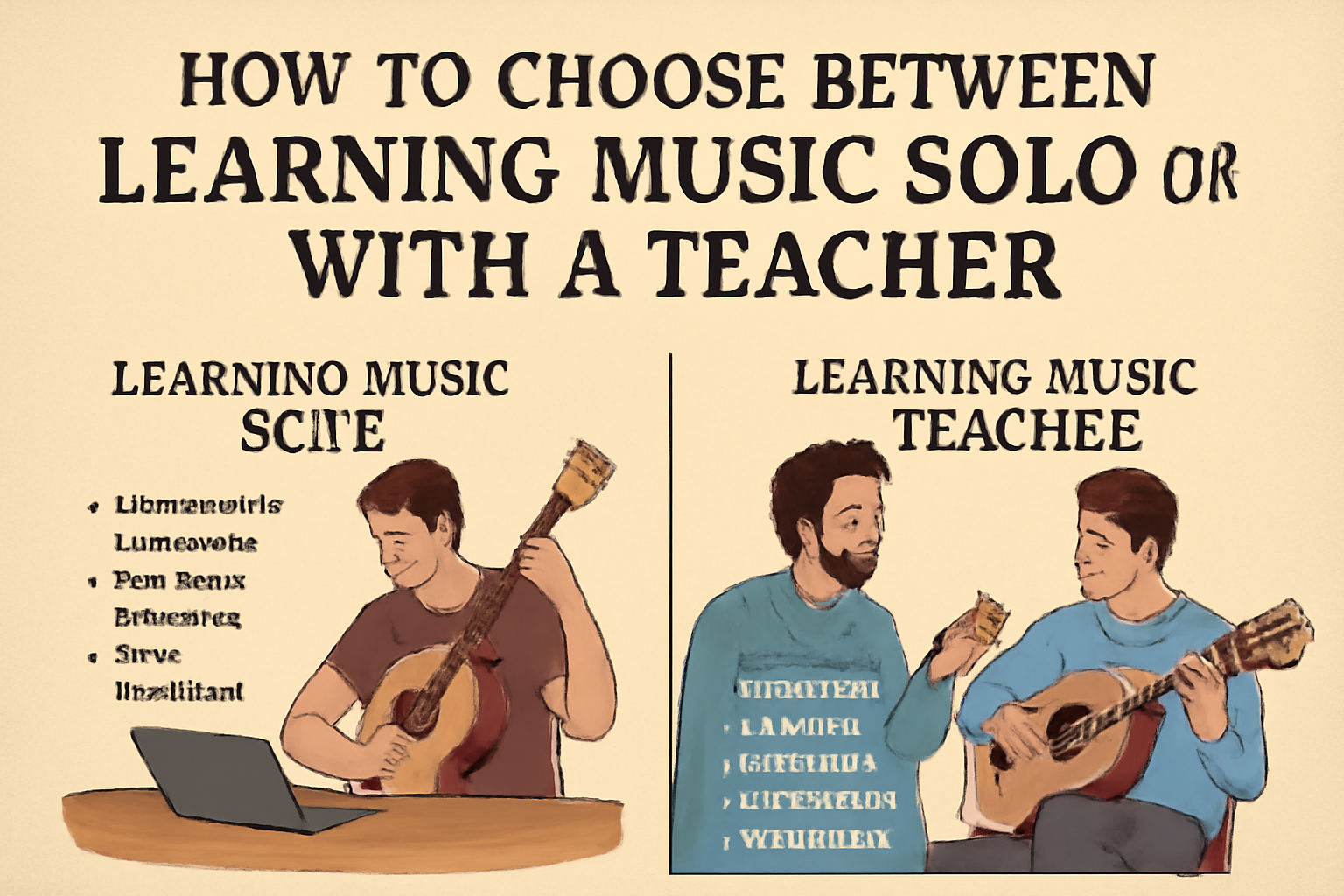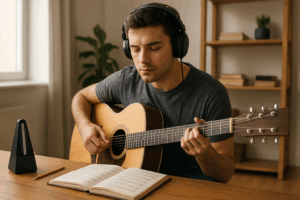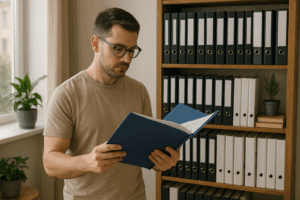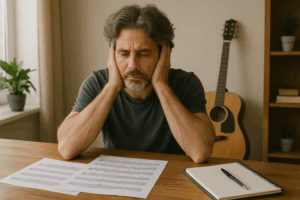Learning music is a deeply rewarding journey, but one of the first decisions any beginner must make is whether to go at it alone or seek the guidance of a teacher. Both options come with their own set of benefits and challenges, and understanding the differences between the two can help you make an informed choice about how to approach your musical studies. In this article, we will explore the pros and cons of both methods and offer tips for making the best decision for your learning style, goals, and resources.
1. The Benefits of Learning Music with a Teacher
Learning music with a teacher offers several advantages, especially for beginners who may need structure, guidance, and motivation in the early stages. Here are some of the key benefits:
Structured Learning Plan
A teacher can create a personalized curriculum based on your current skill level, learning pace, and musical interests. This structure ensures that you’re progressing steadily and not missing out on essential elements of music theory, technique, or repertoire. Teachers also have the ability to track your progress and adjust your lessons as needed, which can help you avoid developing bad habits or hitting roadblocks.
Instant Feedback
One of the biggest challenges when learning on your own is not having immediate feedback on your playing. A teacher can provide real-time corrections and offer constructive criticism, helping you improve faster. Whether it’s adjusting your posture, refining your technique, or interpreting a piece of music, having someone who knows what to look for can significantly enhance your learning experience.
Motivation and Accountability
Having regular lessons with a teacher means you’re more likely to stay committed to your practice. Teachers can help you set goals, track your progress, and encourage you to push through difficult moments. This accountability is often a key factor in maintaining motivation, especially when you’re just starting out and might feel discouraged.
Inspiration and Expertise
Teachers are typically passionate about music and have years of experience to share. Their enthusiasm and knowledge can inspire you to push past your limits and explore new musical horizons. Whether it’s learning a new technique, diving into a new genre, or performing for the first time, a teacher can provide the guidance and encouragement you need to stay excited about your progress.
2. The Benefits of Learning Music Solo
On the other hand, learning music on your own can be equally fulfilling, especially for those who value independence and self-discovery. Here are some of the key advantages of teaching yourself:
Flexibility and Convenience
Learning on your own allows you to set your own schedule and practice at your own pace. You don’t have to worry about adhering to someone else’s schedule or committing to weekly lessons. This flexibility can be especially beneficial if you have a busy lifestyle or prefer to learn at unconventional hours.
Cost-Effective
Taking private music lessons can be expensive, and for many beginners, it might not be a financially viable option. Learning on your own can save you money, as there are countless free or low-cost resources available online, including video tutorials, sheet music, and instructional articles.
Self-Paced Learning
When learning solo, you have the freedom to explore topics that interest you the most. Whether you’re learning your favorite songs, experimenting with improvisation, or focusing on a specific technique, you can choose what to study and how long to spend on each subject. This self-paced approach allows for greater freedom and creativity in your learning process.
Building Independence and Problem-Solving Skills
Learning on your own requires a high degree of self-discipline and problem-solving. You’ll need to figure out solutions to challenges on your own, which can foster a deeper understanding of music. Over time, this approach helps build your ability to troubleshoot issues in your playing and develop critical thinking skills that can be applied both in music and in other areas of life.
3. How to Decide Which Method is Right for You
When deciding whether to learn with a teacher or go solo, it’s important to consider your personal preferences, goals, and resources. Here are a few questions to ask yourself before making a decision:
What is Your Learning Style?
Do you prefer structured guidance and feedback, or are you someone who likes to explore things on your own? If you thrive with instruction and prefer a clear path to follow, learning with a teacher might be a better fit. If you enjoy the freedom of self-discovery and don’t mind figuring things out on your own, learning solo may be more appealing.
What Are Your Musical Goals?
Are you aiming to play a specific genre or piece of music, or are you looking to develop well-rounded musicianship? If you have specific goals, such as preparing for an exam or learning to play in a band, working with a teacher may help you achieve them more effectively. On the other hand, if you simply want to play for fun or experiment with different styles, self-teaching might be more enjoyable.
How Much Time Can You Dedicate to Practice?
Learning with a teacher requires a time commitment for regular lessons, but self-teaching requires consistent practice and self-motivation. If you struggle with staying on track or need external motivation, a teacher could help. If you are disciplined and can make time for regular practice on your own, solo learning may work well for you.
What is Your Budget?
Private lessons can be costly, especially over time. If budget is a concern, consider starting with a combination of lessons and self-learning, or exploring affordable online classes and resources. Many teachers also offer group lessons or online lessons that can reduce the cost while still providing structure and guidance.
4. Hybrid Approach: Combining Both Methods
For many students, the best option might be a combination of both learning methods. You can take lessons with a teacher while also dedicating time to self-study and exploration. This hybrid approach allows you to benefit from personalized feedback and guidance, while also giving you the freedom to learn at your own pace.
Many musicians use this method to complement their lessons with independent practice. For example, you could take weekly lessons to work on technique and theory, and then spend the rest of the week practicing your favorite songs or experimenting with new styles on your own.
Both learning with a teacher and learning on your own have their own set of advantages and challenges. The key is to find the method that aligns with your learning style, goals, and resources. If you enjoy structure and accountability, a teacher might be the right choice for you. If you value flexibility and independence, self-teaching could be a more fulfilling option. Remember that many musicians find success by combining both methods, so feel free to experiment and discover the best approach for your musical journey.




